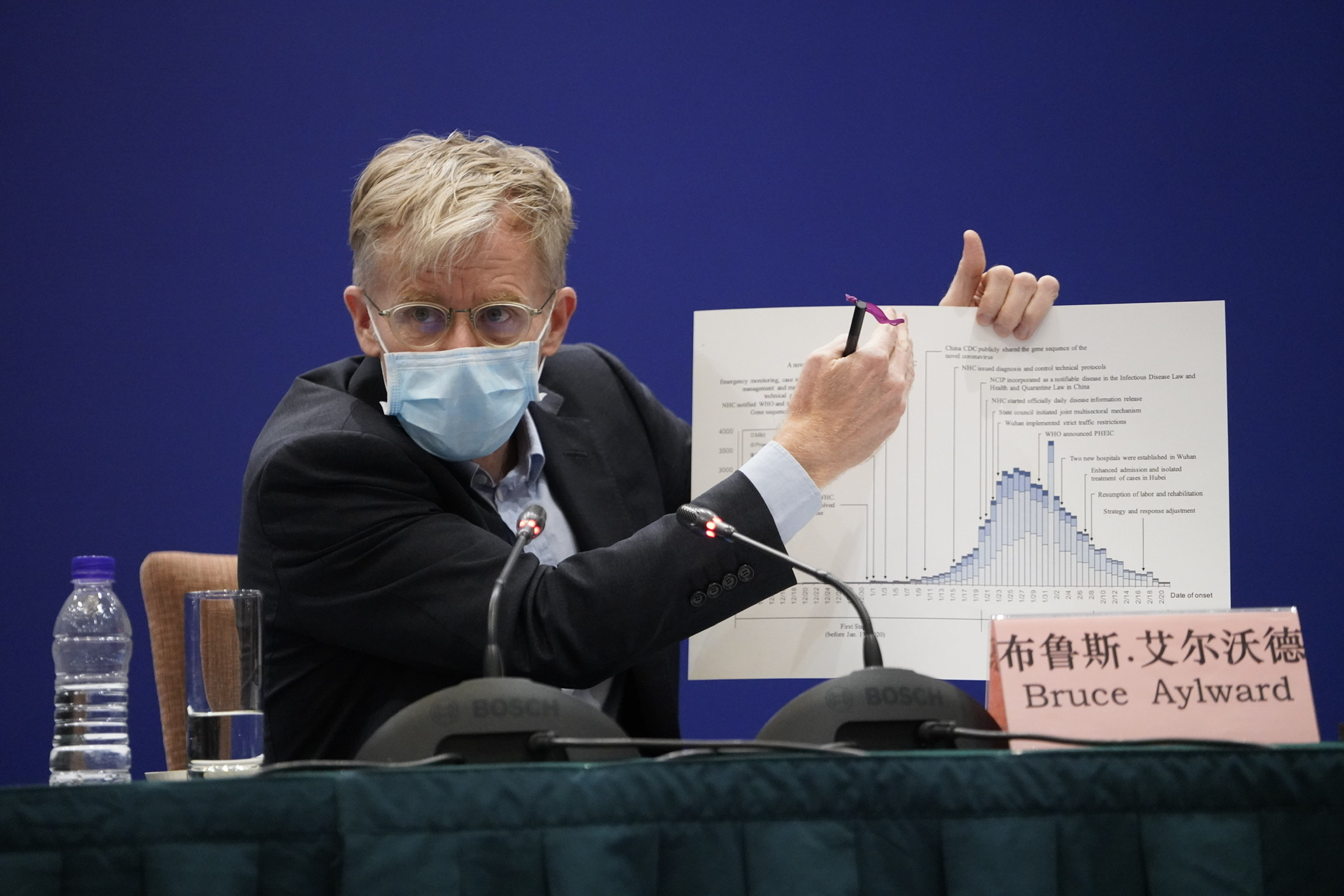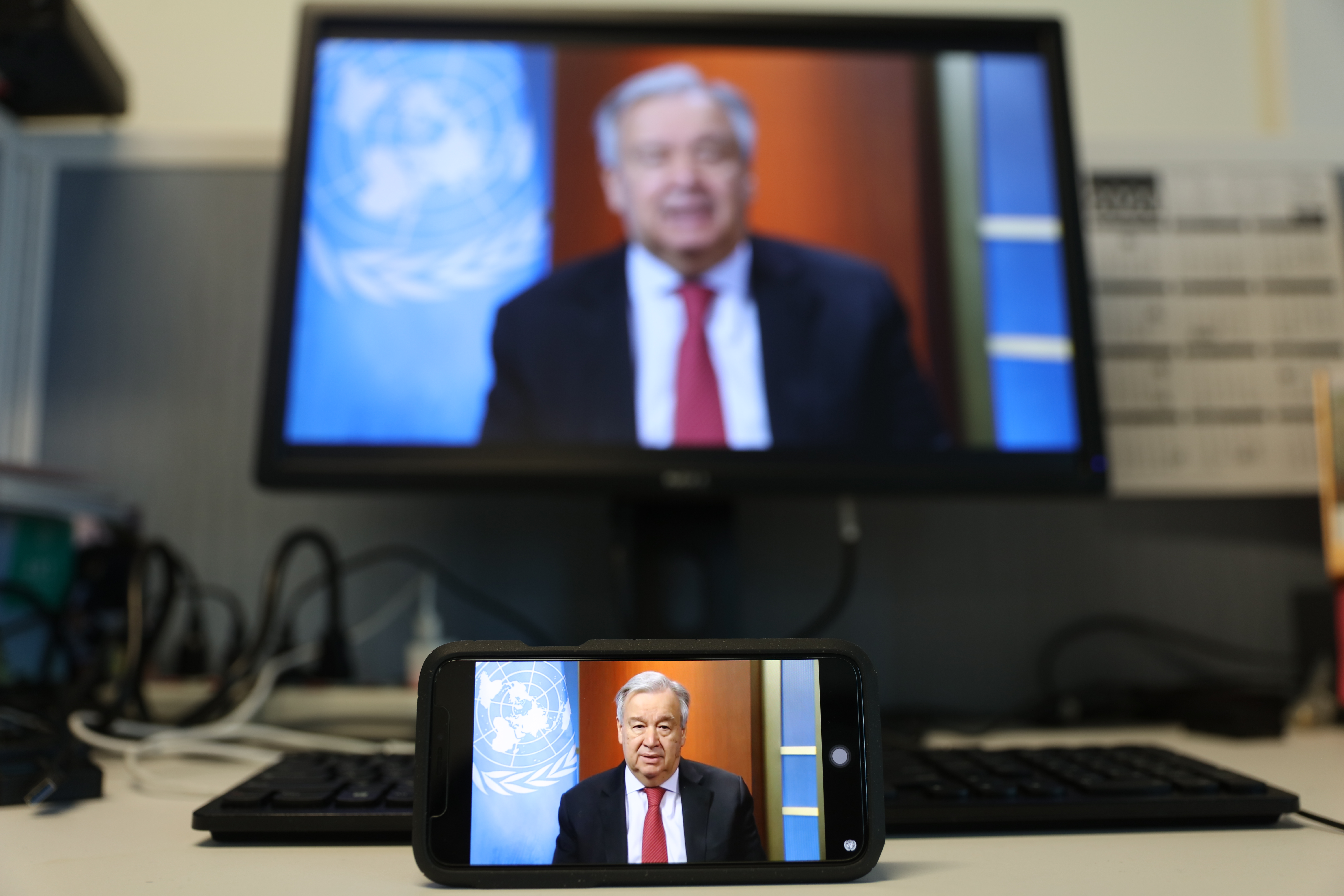— As a specialized agency for public health, the WHO has striven to fulfill its purposes of collecting information on various infectious diseases globally and issuing timely warnings.
— As a key platform for multilateral cooperation mechanisms, the WHO has played an important role in coordinating international efforts to end the global fight.
— In addition to daily situation reports starting on January 21, the organization has published practical guidance that covers all aspects of epidemic prevention and control on its website, including surveillance and case definitions, patient management, risk communication and community engagement, country-level coordination, planning and monitoring, and guidance for schools, workplaces and institutions.
GENEVA, April 19 (Xinhua) — Since the onset of the COVID-19 outbreak, the World Health Organization (WHO) has taken timely and decisive measures with an objective, scientific and impartial response to guide global anti-epidemic cooperation, gaining wide recognition from the international community.
Despite the rapid spread of the pandemic, which, according to the latest figures of the WHO, has led to over 2.1 million cases and more than 146,000 deaths globally, the U.S. administration announced earlier this week that it is halting funding to the WHO, after weeks of criticism of the health organization and its handling of the outbreak.
While some Western politicians have politicized the virus and smeared the efforts of the WHO, China has called for solidarity and cooperation in the global fight.
In an article published in the Qiushi Journal on Thursday, Chinese President Xi Jinping wrote that only with solidarity and cooperation can the international community prevail over the epidemic and protect humanity's common home.
Timely Warnings
As a specialized agency for public health, the WHO has striven to fulfill its purposes of collecting information on various infectious diseases globally and issuing timely warnings.
The WHO "has largely served its purpose well" in the COVID-19 crisis, said Thomas Bollyky, director of the global health program and senior fellow for global health, economics, and development at the Council on Foreign Relations, a U.S. think tank, urging Washington not to "degrade it amid a crisis."
On January 5, the WHO published its first disease outbreak news on the new virus, including a risk assessment, advice, and China's reports on the virus, two days after China informed the organization of the outbreak, as well as relevant countries and regions.
On January 12, the agency said in a press release that "China shared the genetic sequence of the novel coronavirus, which will be of great importance for other countries to use in developing specific diagnostic kits."
On January 31, WHO Director-General Tedros Adhanom Ghebreyesus declared the outbreak a Public Health Emergency of International Concern (PHEIC), sending the highest level of alarm.
On March 11, Ghebreyesus said at a press conference that "COVID-19 can be characterized as a pandemic."
The WHO quickly declared a PHEIC and classified COVID-19 a pandemic soon after, Lawrence Gostin, a public health law professor at Georgetown University, tweeted on April 8, adding that "US/Europe had time to prepare. They didn't! Easy to blame @WHO, but it's our fault."
U.S. President Donald Trump is attacking the WHO "because he loves to have international targets that deflect from his own performance on the pandemic," Darrell West, director of governance studies at Brookings Institution, a Washington D.C.-based think tank, told Xinhua.
In addition to sounding warnings at critical moments, the WHO always sends experts to virus-hit regions to collect information to better understand the situation.
On January 28, a senior WHO delegation led by Ghebreyesus traveled to China's capital Beijing.
On February 16, the WHO-China Joint Mission, consisting of 25 experts from eight countries and the WHO itself, began its nine-day field study trip in Beijing and the provinces of Guangdong, Sichuan and Hubei.

Bruce Aylward, an epidemiologist who led an advance team from the World Health Organization (WHO), speaks during a press conference of the China-WHO joint expert team in Beijing. [Xinhua/Xing Guangli]
"China's good cooperation with the World Health Organization has enabled various national authorities to prepare, as best as possible, for the difficulties brought by the wave of contamination," former French prime minister Jean-Pierre Raffarin told Xinhua.
Anti-Epidemic Coordinator
The pandemic is "a global emergency, and every aspect of the response needs coordination," said Dr. David Nabarro, co-director of the Institute of Global Health Innovation at Imperial College London, who has been appointed as a special envoy for the response to the coronavirus pandemic.
As a key platform for multilateral cooperation mechanisms, the WHO has played an important role in coordinating international efforts to end the global fight.
On February 7, warning that the world is facing severe shortages of personal protection equipment (PPE), Ghebreyesus said the WHO is engaging more than ever with private sectors globally to send test kits, masks, gloves, respirators and medical gowns to every affected region.
According to a report published by the Brookings Center on Regulation and Markets late last month, the WHO had sent hundreds of thousands of tests to different countries by early February, but the United States insisted on developing its own test kits, delaying testing throughout nearly all of February — "a lost month during a critical period."
So far, the organization has shipped more than 2 million items of PPE to 133 countries and regions, as well as over 1 million diagnostic tests to 126 countries, the WHO chief said at a news conference on April 8.
To fast-track global research on the disease, a two-day forum on COVID-19 coordinated by the WHO concluded in Geneva on February 12, identifying nine thematic areas of research on the outbreak, such as vaccine research.
Noting that vaccine research "is an issue that must have strong global coordination," Nabarro said, "I'm very pleased the World Health Organization has established mechanisms for doing this and I hope that all nations will follow it."
On April 8, Ghebreyesus said that the WHO has pledged over 800 million U.S. dollars in response to the pandemic, including more than 140 million dollars raised through its COVID-19 Solidarity Response Fund launched in March.
"Our position is that the UK has no plans to stop funding the WHO, which has an important role to play in leading the global health response," a spokesperson for British Prime Minister Boris Johnson said at a media briefing on Wednesday.
The British government on April 12 announced a donation of 65 million pounds (81 million dollars) to the WHO to support the anti-epidemic fight.
Practical Guidance
The WHO played an important role in directing the global fight against COVID-19, said Takakage Fujita, director general of a Japanese civil group dedicated to upholding and developing the well-known Murayama Statement.
In addition to daily situation reports starting on January 21, the organization has published practical guidance that covers all aspects of epidemic prevention and control on its website, including surveillance and case definitions, patient management, risk communication and community engagement, country-level coordination, planning and monitoring, and guidance for schools, workplaces and institutions.
On March 18, the WHO and its partners launched the Solidarity Trial, an international clinical trial to help find an effective treatment for COVID-19.
"I'm glad that many countries have joined the Solidarity Trial, that will help us to move with speed and volume," Ghebreyesus said at a news briefing on March 23.
Through its OpenWHO platform, the agency provides real-time training for medical workers with interactive and online courses in 43 languages, including public health expertise and in-depth discussion and feedback on key issues, which has attracted 1.2 million participants.
In a reply letter to Ghebreyesus, Xi said on March 26 that China will continue to firmly support Ghebreyesus and the WHO playing an active and leading role in the global fight.
"The WHO, with thousands of its staff, is on the front lines, supporting member states and their societies, especially the most vulnerable among them, with guidance, training, equipment and concrete life-saving services as they fight the virus," United Nations Secretary-General Antonio Guterres said in a statement on April 8.

Photo taken on April 3, 2020 shows UN Secretary-General Antonio Guterres speaking at a virtual press briefing. [Xinhua/Xie E]
The UN chief on Tuesday noted that "now is the time for unity and for the international community to work together in solidarity to stop this virus and its shattering consequences."
(Source: Xinhua)